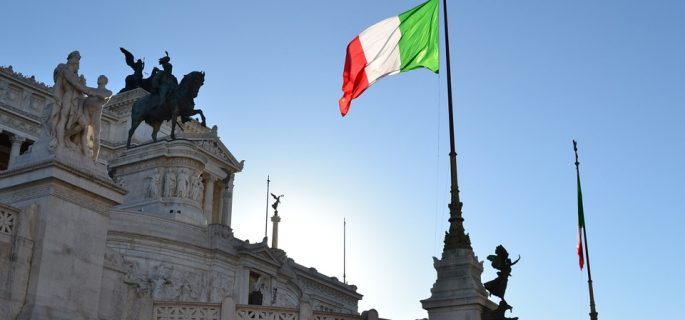Election in Italy appears to have given no party a clear majority; Here’s what happens next

Sunday’s election in Italy appears to have given no party a clear majority — signaling a period of political instability for one of Europe’s biggest economies.
As of Sunday night local time, Italian exit polls indicated that a center-right bloc will gain the most seats in parliament — though that group does not include the day’s top vote-getter, the anti-establishment Five Star Movement.
Those results are in line with market expectations. Italy will now try to calm markets, while its many political parties work to form a new government and appoint a prime minister.
Weeks of negotiations on the way
Weeks of talks between the parties may now lie ahead. In the event of a hung parliament, the Italian constitution specifies no time limit for parties to reach an agreement or call a fresh election.
“The formal process to form a government will be directed by President of the Republic Sergio Mattarella. The president is under no obligation to hand a mandate to the biggest party, and may first seek to establish whether parties can get together a coalition with enough seats to govern,” Wolfango Piccoli, co-president of Teneo Intelligence, said in a note last Tuesday.
Once the parliament reconvenes on March 23, Mattarella will be able to nominate a prime minister-designate.
According to research firm the Economist Intelligence Unit (EIU), “Mattarella may also award an ‘exploratory’ mandate, giving a prime minister-designate several days to negotiate with other parties before reporting back to him.”
“More than one round of talks is possible, as the president would be very unlikely to award a ‘full’ mandate to form a government and schedule a parliamentary confidence debate without assurances that the administration commands a clear majority,” the research group said.
Could a minority government be approved?
“Technically speaking, it is possible. The constitution requires that a government wins a confidence vote with a simple majority in both chambers,” analysts at UBS said in a note Wednesday.
“The drawback of a minority government would be lifespan, stability and potential to implement reforms — all of which would likely be fairly limited,” the bank warned.
Will there be no government in the meantime?
No, Italy will remain under the leadership of caretaker Prime Minister Paolo Gentiloni. He has led Italy since former Prime Minister Matteo Renzi resigned in 2016. Gentiloni has said he will remain in office until a new executive is formed, and his government will exercise full powers in the meantime.
“We see this as a commitment to ensure stability and to prevent market concerns during the likely long period required to form a new coalition after the elections,” UBS said.
Are new elections possible?
“In the event of a ‘badly’ hung parliament, Mattarella could opt to call a new election. We believe this is unlikely, in part because there is no time limit on forming a government in Italy,” the EIU said, adding that the president would also be “reluctant to call a second vote that is likely to yield a similar result.”
Source: CNBC – Italy looks like it’s headed to a hung parliament — here’s what happens next






























Thanks BroIt’s really Working 🙂you’r Good